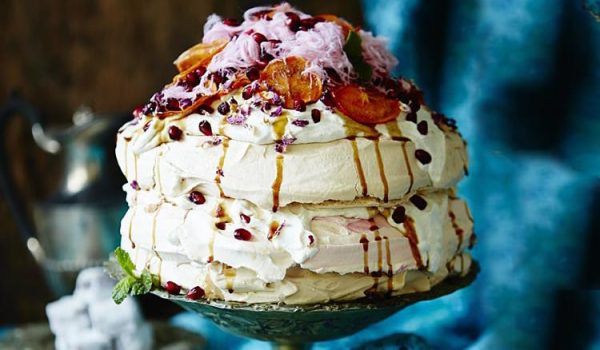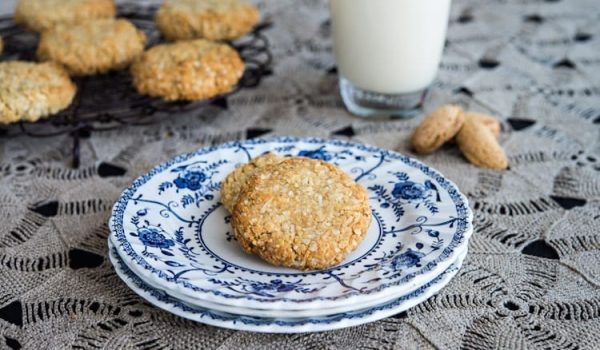The Carousel writer Victoria Webster was given the tour of the lifetime, learning the ins and outs of French bread from a prize-winning Parisian baker, and indulged in mouth-watering pastries and bread along the way.
If there is one thing the French do well, it is bread. The traditional bread of France, the baguette, is the epitome of the fresh, basic and extraordinarily delicious food that is typical of France. This internationally renowned staple stands alongside the Eiffel Tower, the Louvre and Notre Dame as an icon of the nation.
Bread is woven into French culture so tightly that they even celebrate National French Bread Day on March 21st and their patron saint of bakers, St Honore, also has his own festival in May.

Thanks to Paris On The Way tours, I was able to have my brioche and eat it too. Nestled in the hills of the risqué and lively Montmartre, behind a seemingly humble blue door, lies Paris’s best baguette, and I was lucky enough to try it.

With a backstage pass to the Artisan Boulangerie Au Levain D’Antan, I discovered the je ne sais quoi that made French baking the best in the world.
Throughout history, bakers have been a backbone of France. Rising before the sun to provide the country with their most popular food. As a novice baker who has dabbled in cakes, cookies and cupcakes, I was ready to take my skills to the next level.
Who better to teach me than Pascal Barillon? A master baker who is so passionate about the art of baking that he refuses to open more than one Boulangerie, for fear of compromising the bread quality.

Pascal has been baking since 1967 and he holds the prestigious title of first prize in the 2011 Grand Prix de la Baguette de Tradition Française de la Ville de Paris. This ruthless competition comes with a 4000 Euro cash prize and a contract to provide fresh baguettes for President Nicolas Sarkozy throughout the year. Pascal is renowned worldwide and is regularly flown all over the world such as Japan to teach the art of French baking.
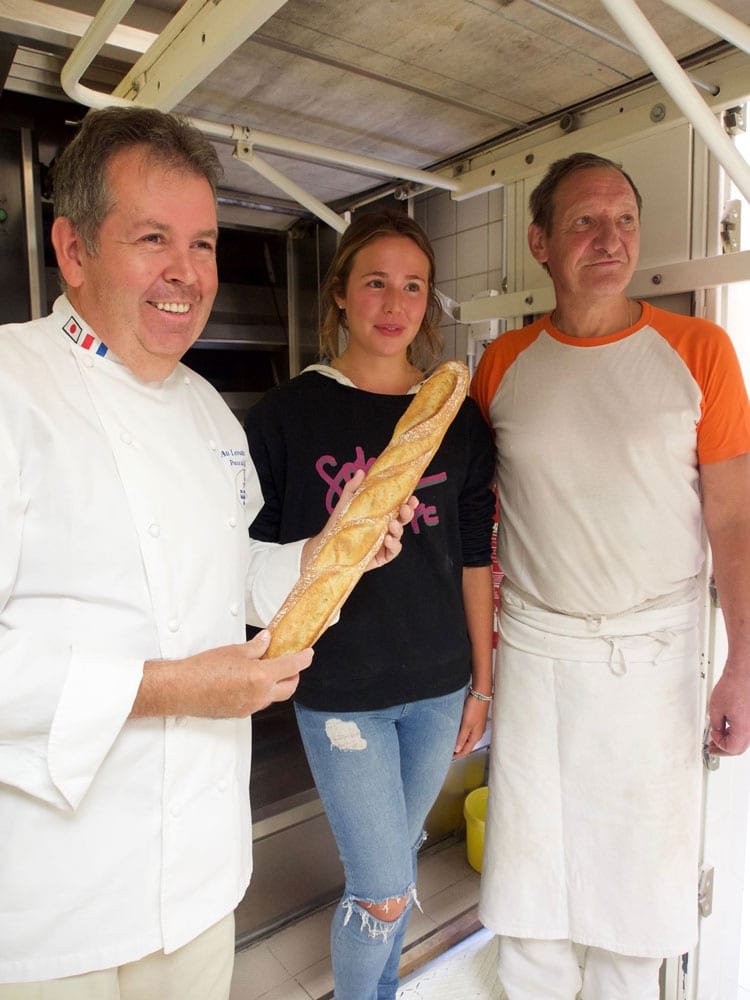
He took me through the steps of baking his prize-winning baguette
“The process takes 8 hours between the kneading, rising and baking”, he said.
“Traditionally, bakers only made bread in the mornings, but due to the demands of a modern lifestyle, they are expected to be constantly producing fresh breads and pastries all day.”
He demonstrated the process of rolling out the dough. He told me that the most important part of achieving a perfect texture finding a balance of gentle yet firm pressure whilst kneading.
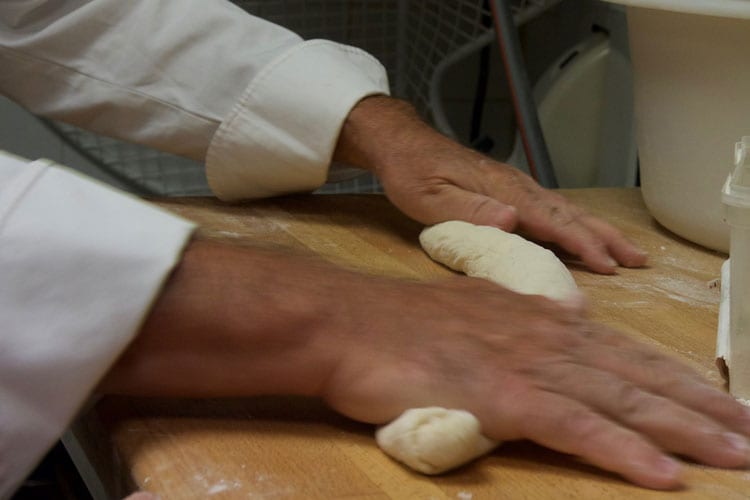
“When choosing a baguette. Always ask for the ‘Pain de Tradicion’”, he told me. “It is about 20 cents more expensive and much more delicious”.
Pascal also gave me his top tip for finding good quality bread in France.
“Make sure that you look for the words ‘Boulangerie’and ‘Artisan’. In France, only bakeries that bake fresh, high quality goods each day can be named a ‘Boulangerie’. Those that have been open for more than 3 years are able to call themselves an ‘Artisan Boulangerie’”, he explained to me.
“In these you will find the real French pastries and bread. Avoid chains like ‘Paul’ and ‘Au Bon Pain’, as they unfreeze mass-produced products instead.”
Once I had successfully rolled my own baguette, he sent me on my way with a full bag of various sweet and savoury breads and pastries. It is fair to say that they didn’t last long.
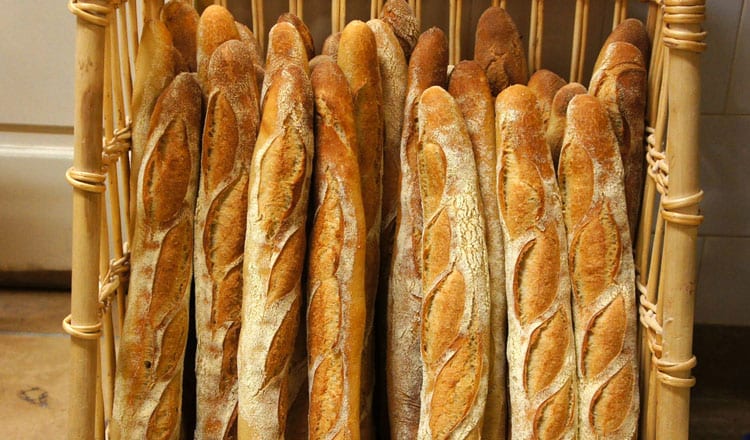
French Baguette Facts
- Ten million baguettes are sold in France every year.
- The baguette is so iconic that Fendi named its signature handbag after the bread. The bag is supposed to be carried under the armpit, just like a baguette
- In French, the word wand translates to baguette. Quite appropriate as their taste is magic!
- National law enforces that ‘French’ bread should contain only flour, yeast, salt and water.
- Bread is such an important part of French cuisine/culture, laws up until 2014 prevented all bakers in Paris taking summer holidays at the same time.
- France has the highest density of bakeries in the world (32,000), less than the 54,000 in 1950.
- The baguette became the icon of French bread in 1920, when a law was passed that banned bakers from starting work before 4am and finishing later than 10pm. This made producing fresh bread each morning more difficult. Due to the baguettes shape, it cooks quickly and was the perfect solution.
- The true French baguette must range from 55 to 65 centimetres, weighing between 250 to 300 grams, 18 grams of salt for 1kg of flour
The Carousel thanks Paris On The Way tours, Pascal and Aurelie for this article.
Au Levain d’Antan: 6 rue des Abbesses, 75018




